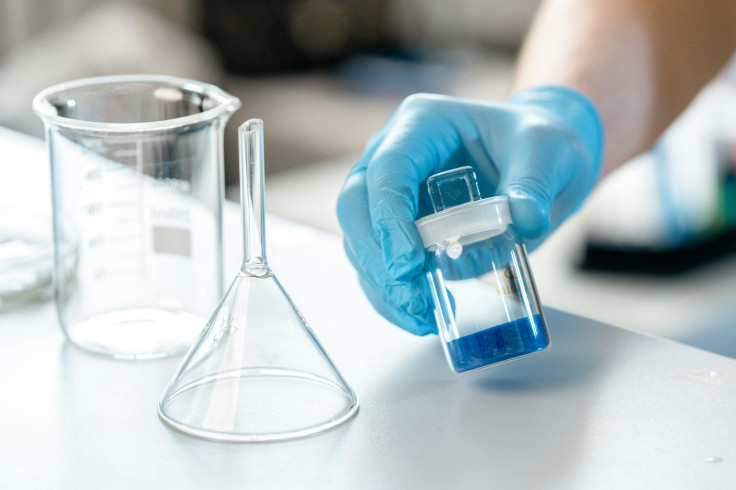Abhishek Sinha: Championing Ethical Innovation And Regulatory Excellence In Life Sciences
Life sciences is the backbone of advancing global health

The life sciences industry—encompassing pharmaceutical development, biotechnology, medical devices, and healthcare services—is the backbone of advancing global health through groundbreaking innovations. Its rapid response to the COVID-19 pandemic, exemplified by the swift development and distribution of vaccines, underscored the sector's capacity to address urgent health crises. Despite this progress, the industry continues to grapple with regulatory compliance, supply chain vulnerabilities, and escalating pricing pressures.
Significant investments in digital health, telemedicine, and Artificial Intelligence (AI)-driven diagnostics have reshaped healthcare delivery in recent years. At the heart of tackling these challenges is Abhishek Sinha, an influential leader who ensures that these technological advancements align with stringent regulatory standards and ethical practices. With over 14 years of experience consulting for Fortune 500 life sciences companies, Abhishek has established himself as a pioneer in integrating strategic technologies and processes to drive transformative business success while adhering to the highest standards of compliance.
"By embedding compliance into the design and development phases, we can create innovative solutions that are not only groundbreaking but also meet the highest standards of safety and effectiveness," Abhishek emphasizes. His approach has set new benchmarks for responsible innovation, enabling life sciences organizations to stay ahead of industry trends while maintaining their commitment to patient safety.
Technological Integration and Innovation
The life sciences industry has witnessed unprecedented investment and technological integration in recent years, driving significant advancements in digital health, telemedicine, and AI-driven diagnostic tools. These innovations have reshaped healthcare delivery, enabling remote patient monitoring, virtual consultations, and more accurate diagnostics. The sector's progress is supported by collaborative efforts between scientists, governments, healthcare systems, and regulators, highlighting the importance of multi-stakeholder partnerships in fostering innovation.
Abhishek Sinha stresses the importance of real-world applications when it comes to emerging technologies. His work ensures that Artificial Intelligence (AI) and machine learning (ML) are not just theoretical advancements but are applied to solve real-world healthcare challenges. For example, he has led initiatives using predictive analytics to process large data sets, helping forecast disease outbreaks and predict patient treatment responses.
"The true potential of AI and machine learning lies in their ability to deliver precision diagnostics and enable personalized medicine at a scale previously unimaginable," Abhishek explains. His work bridges the gap between digital innovation and biological advancements, creating practical solutions that deliver measurable improvements in patient care and healthcare outcomes.
Regulatory Compliance and Challenges
Despite these advancements, the life sciences industry faces considerable challenges, including regulatory compliance, supply chain management, and pricing pressures. The rapid pace of technological innovation necessitates adaptive regulatory frameworks that balance consumer safety with the promotion of innovation.
The COVID-19 pandemic exposed vulnerabilities in Just-In-Time supply chains, prompting a reevaluation of strategies to enhance robustness and resilience. Additionally, the rising cost of specialty drugs and regulatory pressures like the Inflation Reduction Act in the United States impact Research & Development investment and innovation, necessitating a strategic approach to maintain profitability and stakeholder engagement.
Abhishek Sinha is pivotal in helping organisations navigate these challenges, particularly aligning technological innovation with regulatory compliance. He underscores the need for a balanced approach, ensuring that new technologies not only push the boundaries of healthcare but also adhere to stringent regulatory standards. "Balancing innovation with regulatory compliance is a core aspect of my thought leadership in the life sciences industry," Abhishek explains.
"Maintaining this equilibrium is essential to successfully implementing new technologies. My approach is grounded in a deep understanding of the regulatory landscape, and I proactively integrate compliance into every phase of the innovation process." By championing this balance, Abhishek ensures that companies can innovate responsibly, staying ahead of industry trends and regulatory demands.
Innovations In The Life Sciences Industry

The life sciences industry has long been at the forefront of innovation, driving significant advancements across various disciplines, including biotechnology, pharmacology, and medical technology. The COVID-19 pandemic highlighted the sector's capacity for rapid scientific progress, with the development and distribution of vaccines exemplifying seamless collaboration between scientists, governments, healthcare systems, and regulators.
One of the most transformative changes in recent years has been integrating digital technologies into healthcare. Digital health and telemedicine are reshaping the way care is delivered, with wearable devices monitoring vital signs, telehealth platforms enabling remote consultations, and AI-driven diagnostic tools improving accuracy and efficiency in patient care.
Abhishek Sinha has played a key role in advancing these innovations, leading projects that harness the power of AI and digital tools to create practical, real-world solutions. His leadership bridging digital and biological realms unlocks new potential for precision personalised medicine and enhances the overall patient experience.
The pandemic also exposed vulnerabilities in Just-In-Time supply chains, prompting a reevaluation of strategies to build greater resilience. Abhishek has led initiatives to strengthen supply chain management, ensuring that life sciences companies can mitigate risks and adapt to rising costs. As the industry embraces new approaches to supply chain management, Abhishek's expertise in strategic planning continues to contribute to improving operational resilience and ensuring the continuous delivery of life-saving treatments.
Moreover, the rise of adaptive governance and soft law mechanisms is accelerating the adoption of disruptive technologies, allowing regulators to respond swiftly to changes in technology and business models. Abhishek advocates for deep stakeholder engagement, helping regulators and companies collaborate effectively to foster innovation without compromising safety. His forward-thinking approach ensures companies can navigate regulatory landscapes while maintaining their innovative edge in the biopharma sector.
Collaborative Approaches
Abhishek Sinha has cultivated a strong reputation for leveraging collaborative approaches to create tailored solutions that drive value for life sciences clients. Abhishek fosters partnerships across life sciences industry clients and internal teams and ensures that the best industry practices are integrated seamlessly with customised processes and tools.
His ability to collaborate with diverse stakeholders allows him to harness proven methodologies while simultaneously developing bespoke solutions that address each client's unique needs. This dual approach enhances operational efficiency and ensures that the solutions are adaptable to the fast-evolving life sciences landscape.
Through his collaborative efforts, Abhishek has successfully provided significant value by aligning innovations with regulatory requirements, improving performance, and enabling organisations to stay competitive. His focus on teamwork and shared expertise has been critical in helping life sciences companies navigate complex challenges while continuously delivering real-world results.
Future Trends In The Life Sciences Industry
The life sciences industry is poised for continued transformation, driven by sustainable practices, ethical standards, and cross-industry collaborations. The convergence of digital and biological realms promises to unlock new potentials in healthcare, while regionalised manufacturing ecosystems aim to ensure equitable access to life-saving treatments.
As the sector navigates these complexities, its commitment to innovation, collaboration, and ethical practices will be crucial in shaping the future of healthcare and pharmaceuticals.
Abhishek Sinha envisions several key trends that will define the industry's future.
Digital Health and Telemedicine
One major shift is the growing impact of digital health and telemedicine, with technologies like wearable devices, AI-driven diagnostic tools, and telehealth platforms reshaping how care is delivered. This convergence of the digital and biological realms creates transformative solutions, with initiatives like McKinsey's Digital Capability Center for Cell and Gene Therapy accelerating biopharma's digital transformation.
Sustainability and Ethical Practices
In addition, sustainability and ethical practices are becoming increasingly vital. Abhishek sees sustainable lab practices and ethical clinical trials as key to long-term industry viability. As advocated by Deloitte and the World Economic Forum, nearshore vaccine manufacturing ecosystems further reflect the push for more equitable healthcare solutions.
Cross-industry and Academic Collaborations
Collaboration will also be essential, and cross-industry and academic partnerships will continue to play a significant role in pooling resources, sharing risks, and accelerating innovation. The COVID-19 pandemic demonstrated how collaboration between scientists, governments, and regulators can fast-track scientific progress, and Abhishek anticipates that these synergies will drive future advancements.
Consumer Health and Medical Aesthetics
The consumer-health industry is booming, driven by an ageing population and a proliferation of wellness-related products and services. The medical aesthetics sector also shows strong resilience and potential for strategic business model and product portfolio innovations.
Regulatory Compliance and Digital Transformation
As insurers and auditors respond to the evolving regulatory landscape and digitalisation, there is a heightened focus on managing costs, driving innovation, and integrating social care. The publication of IFRS 17 'Insurance Contracts' after twenty years of development highlights the industry's commitment to adapting to new regulatory requirements.
Future Outlook

Looking ahead, Abhishek sees several key trends shaping the future of the life sciences industry. One major shift is the growing impact of digital health and telemedicine, with wearable devices, AI-driven diagnostic tools, and telehealth platforms transforming healthcare delivery. Additionally, sustainability and ethical practices are becoming increasingly vital. Abhishek envisions a future where sustainable lab practices and ethical clinical trials become standard practices across the industry.
"Continuous innovation must be grounded in ethical practices to build trust and ensure long-term success," Abhishek asserts. His vision for the future is one where technology and compliance are harmonized to create transformative healthcare solutions, addressing critical issues such as equitable access to life-saving treatments, rising healthcare costs, and global healthcare disparities.
Abhishek Sinha's extensive experience and thought leadership have guided the life sciences industry through rapid advancements and evolving challenges. By fostering a balanced approach to innovation and regulatory compliance, he has enabled organizations to unlock new potentials while maintaining their commitment to patient safety and industry regulations. As the life sciences sector stands at a pivotal intersection of challenges and opportunities, Abhishek's contributions ensure that it remains resilient, adaptable, and capable of meeting the ever-evolving demands of global healthcare.
© Copyright IBTimes 2025. All rights reserved.





















